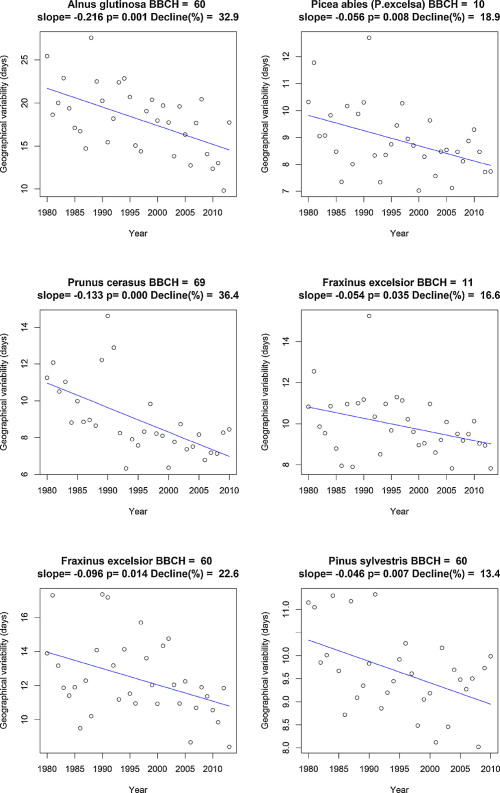Advancements of spring phenology due to climate warming have been observed worldwide in the last decades, however, whether the occurrence of species-specific phenology events among populations over broad space has been converged or diverged with recent warming has been little explored. We addressed this question through analyzing temporal changes in the geographical variability for 22 spring phenological events (both leaf-out and flowering phenology) of 16 temperate tree species in Europe. This study, for the first time, found that the species-specific geographical variability of spring phenological timing decreased during 1980 - 2013, indicating that phenological differences among populations over a large geographical area decreased. The reduced geographical variability is mainly due to the fact that populations in cold sites had higher advancement rates and exhibited stronger responses to elevated temperature than those in warm sites. Warming-induced convergence of spring phenology in temperate trees over a large geographical area may affect the activities of other species in the food chain through trophic mismatch, and may ultimately affect the ecosystem carbon and nutrient cycles that are driven through functioning of the food chain.
This study is published in Agricultural and Forest Meteorology (Top 1 in Forestry, 2017IF=4.039) titled with "Reduced geographical variability in spring phenology of temperature trees with recent warming". This study was primarily funded by National Natural Science Foundation of China, the 100 Talents Program of the Chinese Academy of Sciences (CAS), Natural Science Foundation of Guangdong Province, CAS/SAFEA International Partnership Program for Creative Research Teams.
Read the article: https://doi.org/10.1016/j.agrformet.2018.04.012

